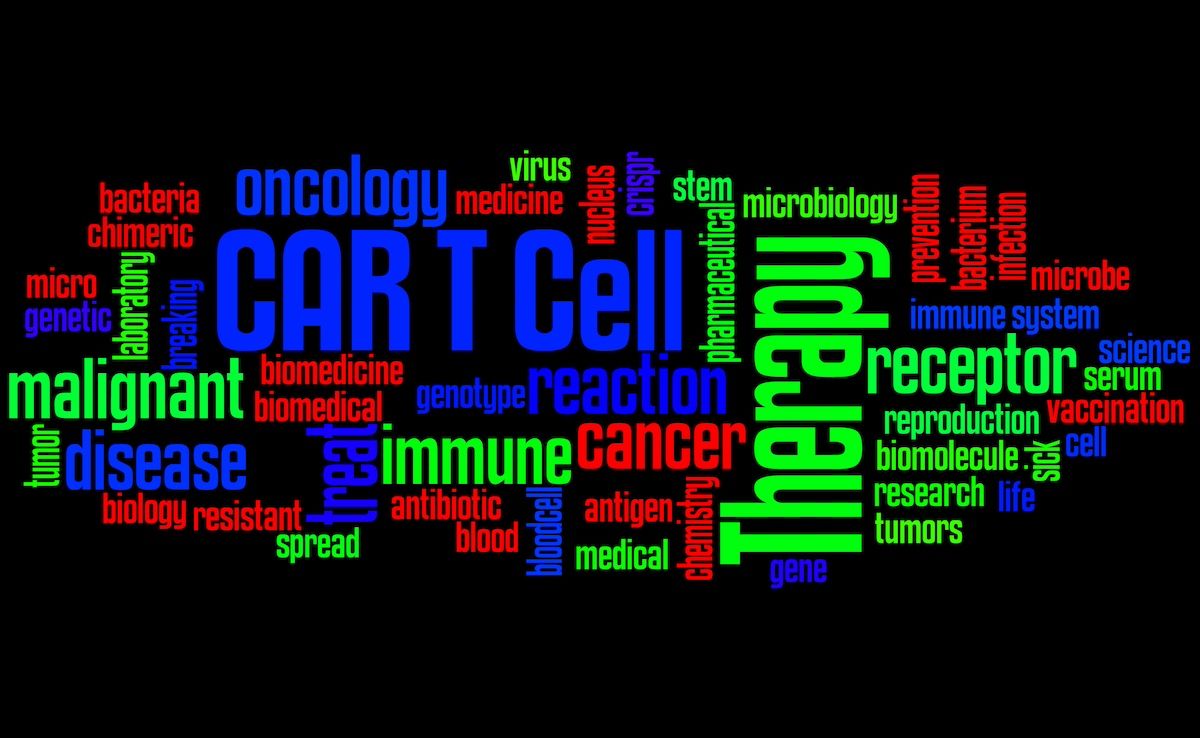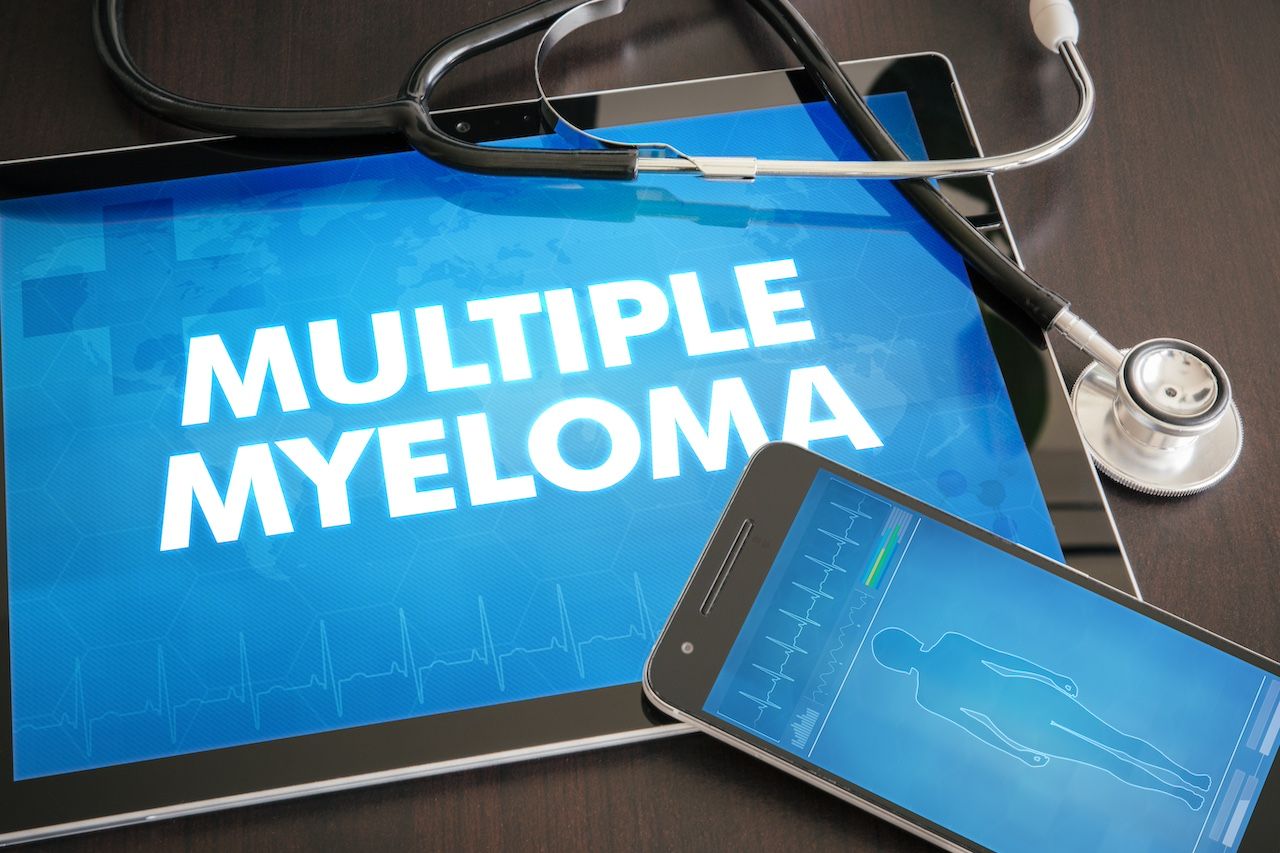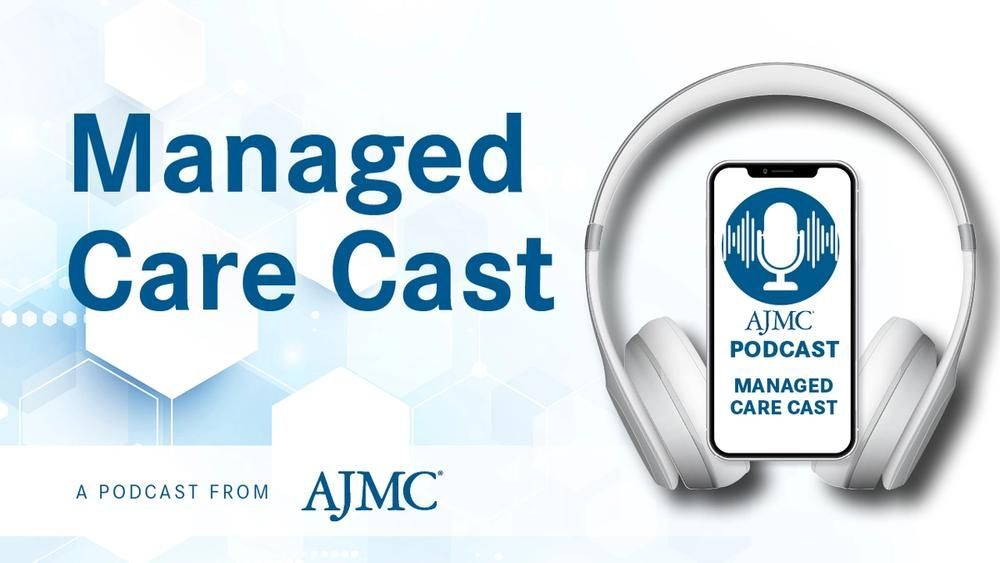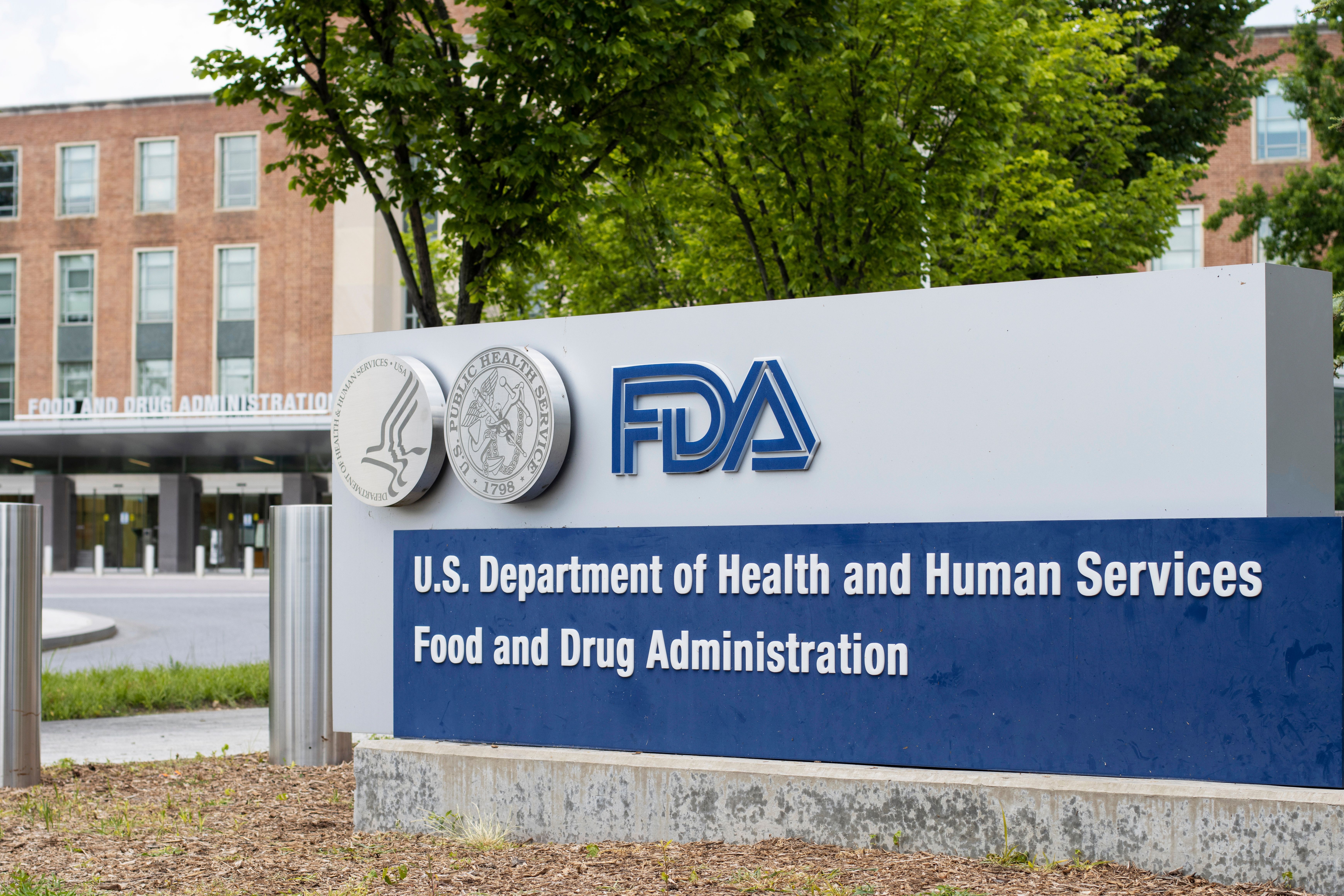News
Article
Eque-Cel CAR T Shows Strong Results for Multiple Myeloma
Author(s):
Key Takeaways
- Equecabtagene autoleucel showed high efficacy in relapsed/refractory multiple myeloma, with a 96% overall response rate and 42.6% complete response rate at three months.
- Minimal residual disease negativity was achieved in 95% of patients, with a median time to this outcome of 15 days.
Multiple myeloma is the second most common hematologic malignancy, but there is a treatment gap for patients with disease progression following standard-of-care therapies that include immunomodulatory agents, proteasome inhibitors, and anti-CD38 antibodies.
Equecabtagene autoleucel (eque-cel), an investigative fully human-derived B-cell maturation antigen (BCMA)–targeting chimeric antigen receptor (CAR) T-cell therapy directed against multiple myeloma, has shown great promise in a new study conducted at 14 centers in China, with both CAR T–naive (88.3%) and CAR T–experienced (11.7%) patients showing benefit.
Early, deep, and durable responses were seen among 103 patients who received a single treatment infusion at 1.0 x 106 CAR-positive T cells/kg after lymphodepletion, as participants (N = 103) in the phase 1b/2 nonrandomized FUMANBA-1 trial (ChiCTR2000033946), according to results published online today in JAMA Oncology.1 All of the patients had received at least 3 prior lines of therapy, but not everyone had received prior CAR T. The primary outcome of interest of this analysis was efficacy, via overall response rate (ORR), and secondary outcomes of interest were safety, pharmacokinetics, and pharmacodynamics. Minimal residual disease (MRD) status was assessed at screening, baseline, and when patients achieved at least a very good partial response (PR) or disease progression. Study participants will be followed for at least 15 years for ongoing response monitoring.
Other BCMA-directed therapies have proved effective against multiple myeloma, backed by results from several prominent trials: DREAMM-2 (NCT03525678),2 Cartitude-4,3 KarMMa-3,4 MajesTEC-1,5 and MagnetisMM-3.6 However, more data are needed on human use of fully human-derived BCMA CAR T therapies such as eque-cel.
Prior to receiving eque-cel, the patients underwent lymphodepletion with 500 mg/m2 of cyclophosphamide and 30 mg/m2 of fludarabine administered intravenously daily for 3 consecutive days. Most (53.4%) were male patients, and their median age was 58 (range, 39-70) years. All were Chinese. Among those who received bridging therapy (46.6%), 3 achieved a PR; 9 had a minor response; 22 had stable disease; and 14 experienced disease progression.
The median follow-up was 13.8 (range, 0.4-27.2) months, and during this time, the ORR was 96%, and it was 99% among those naive to CAR T. Median time to first response of at least a PR was 16 (range, 11-179) days, and to best response, 92 (range, 14-557) days. At 3 months after CAR T infusion, the ORR remained high, at 94.1%, and 42.6% had achieved a complete response (CR) or a stringent CR (sCR). By the 12-month mark, the latter measure had jumped to 73.3%. Among the patients with no history of CAR T, the CR/sCR rate was 79%.
In the FUMANBA-1 trial, 103 patients received a single infusion of 1.0 x 106 CAR-positive T cells/kg after lymphodepletion, and benefits were seen in patients who had and had not received prior CAR T. | Image Credit: © kalpis-stock.adobe.com

There was also a very high MRD negativity rate of 95%, with a median time to this outcome of 15 (range, 14-186) days, with 8 patients sustaining this status for over 2 years. Also among those who achieved MRD negativity, the CR rate was 75% and the sCR rate was 42%.
Median progression-free survival and overall survival were not reached, but at 12 months, these measures were 78.8% (95% CI, 68.6%-86.0%) and 92.2% (95% CI, 84.3%-96.2%). Further, in CAR T-cell therapy–naive patients, the ORR and PFS were superior compared with CAR T–experienced patients.
Following the infusion, the median maximum copy number was 87,571 (range, 439-196,888 copies/μg DNA), and median time to maximum copy number was 12 (range, 0-23) days.
Of the total patient cohort, 102 experienced adverse events (AEs), 94.2% of which were grade 3 or higher, and these included neutropenia (81.6%), leukopenia (74.8%), thrombocytopenia (59.2%), lymphopenia (59.2%), and anemia (51.5%). Cytokine release syndrome was also a common AE (grade 1/2, 92.2%; grade 4, 1%), at a median (IQR) duration of 5 (4-7) days and a median time to onset of 6 (4-7.5) days. Infection treatment-related serious AEs were seen in 32 patients, and 14 patients died.
“The impaired humoral immunity, characterized by prolonged B-cell depletion and hypogammaglobulinemia, was a significant contributing factor to these infections,” the authors wrote. “To prevent infections, strategies were developed and implemented during the study.”
For patients who experienced neutropenia and/or thrombocytopenia, median recovery times were 13 (95% CI, 12-14) days and 30 (95% CI, 20-46) days, respectively.
Five investigational new drug approval (IND) applications have been approved for eque-cel by the FDA for the therapy’s use in systemic lupus erythematosus and lupus nephritis, multiple sclerosis, and myasthenia gravis.7 It has also received 2 IND approvals from China’s National Medical Products Administration to treat relapsed/refractory multiple myeloma and neuromyelitis optica spectrum disorder.8
The authors highlighted the study’s strengths including its representation of the largest Asian population in a CAR T trial and the remarkable response in patients who experienced disease progression on prior BCMA CAR T. Still, limitations were there was no comparator and the total number of patients who had undergone a previous autologous stem cell transplant was low.
“Future studies with a larger and more racially diverse population with long-term follow-up are required,” they concluded.
References
1. Li C, Zhou K, Hu Y, et al. Equecabtagene autoleucel in patients with relapsed or refractory multiple myeloma: the FUMANBA-1 nonrandomized clinical trial. JAMA Oncol. Published online November 7, 2024. doi:10.1001/jamaoncol.2024.4879
2. Lonial S, Lee HC, Badros A, et al. Belantamab mafodotin for relapsed or refractory multiple myeloma (DREAMM-2): a two-arm, randomised, open-label, phase 2 study. Lancet Oncol. 2020;21(2):207-221. doi:10.1016/S1470-2045(19)30788-0
3. Shaw M. FDA approves cilta-cel for earlier treatment of RRMM. AJMC®. April 6, 2024. Accessed November 6, 2024. https://www.ajmc.com/view/fda-approves-cilta-cel-for-earlier-treatment-of-rrmm
4. Bonavitacola J. Ide-cel receives approval for earlier treatment for relapsed, refractory multiple myeloma. AJMC. April 5, 2024. Accessed November 6, 2024. https://www.ajmc.com/view/ide-cel-receives-approval-for-earlier-treatment-for-relapsed-refractory-multiple-myeloma
5. AJMC staff. Teclistamab approved for biweekly dosing in R/R multiple myeloma. AJMC. February 23, 2024. Accessed November 6, 2024. https://www.ajmc.com/view/teclistamab-approved-for-biweekly-dosing-in-r-r-multiple-myeloma
6. Pfizer’s Elrexfio receives U.S. FDA accelerated approval for relapsed or refractory multiple myeloma. News release. Pfizer. August 12, 2024. Accessed November 6, 2024. https://investors.pfizer.com/Investors/News/news-details/2023/Pfizers-ELREXFIO-Receives-U.S.-FDA-Accelerated-Approval-for-Relapsed-or-Refractory-Multiple-Myeloma/default.aspx
7. FDA approves IND application for eque-cel T-cell therapy in SLE, lupus nephritis. News release. Healio. August 12, 2024. Accessed November 6, 2024. https://www.healio.com/news/rheumatology/20240812/fda-approves-ind-application-for-equecel-tcell-therapy-in-sle-lupus-nephritis#:~:text=The%20FDA%20has%20cleared%20an,IASO%2C%20said%20in%20the%20release
8. IASO Bio receives U.S. FDA approval of investigational new drug application for equecabtagene autoleucel for two new autoimmune disease indications. News release. PR Newswire. August 12, 2024. Accessed November 6, 2024. https://www.prnewswire.com/news-releases/iaso-bio-receives-us-fda-approval-of-investigational-new-drug-application-for-equecabtagene-autoleucel-for-two-new-autoimmune-disease-indications-302219682.html
Newsletter
Stay ahead of policy, cost, and value—subscribe to AJMC for expert insights at the intersection of clinical care and health economics.




